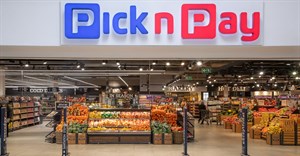Trending



 Does anyone know what content is any more?Justine Drake
Does anyone know what content is any more?Justine Drake

Elections 2024
Jobs
- Junior Graphic Designer Umhlanga
- Account Executive Umhlanga
- Warehouse Team Leader George
- Warehouse General Worker George
- Temp Administrator George
- Operational Manager - Food Industry Mossel Bay
- Baker - Commercial Bakery Vereeniging
- Brand Ambassador Hazyview
- Field Sales Representative Hazyview
- Customer Sales Consultant Hazyview
Grocery retailing: Embracing digital disruption

In an age of digital revolution, the grocery retail industry is having to invest massively to meet the needs of ever more demanding, tech-savvy customers. From the growth of online retail and the rise of mobile use to the current obsession with data-driven logistics, digital disruption is forcing retailers to literally shape up or ship out. This is as a result of technology-driven start-ups who are setting up business models that could potentially render them moribund in the next few years.
Guy Lundy, a trends analyst and strategy consultant specialising in the retail and consumer sector across Africa, says there are three distinct waves of digital disruption retailers have to contend with:
- The use of ‘big data’ analytics to drive efficiencies. Innovative retailers are combining data obtained from loyalty schemes with data from other sources such as social media, point-of-sale records, inventory tracking and website analytics to predict shopping trends, design targeted customer campaigns and connect with their customers in novel ways.
“The challenge for South African grocery retailers is that while most are tapping into multiple sources of ‘big data’, many have not yet translated this into competitive advantage for their companies. We need to learn from the success of retailers in the UK, who are arguably leading the way in this field, especially in terms of loyalty schemes,” says Lundy.
- The steady growth of online sales. The world is not likely to see the demise of brick-and-mortar stores anytime soon. But as consumer confidence in online purchases increases in other shopping categories, it won’t be long before the trend becomes a strong challenge to grocery retailers. “Online retail has been capturing all the gains in retail sales globally over the past few years, and is likely to continue to do so in the foreseeable future,” says Lundy.
Even though South Africa has a relatively small online customer base, a more sophisticated urban market and the extensive roll-out of fibre broadband in urban areas may soon change this. “While some South African grocery retailers do now have online shops, others are way behind the curve and offer no online purchasing opportunities. All it takes is one trend-setting start-up to set up a competitive, pure online business to cause a major disruption in the industry – this has, in fact, already happened in the UK with the rise of the online-only grocery retailer Ocado.com.”
- The rise of mobile use worldwide. Mobile technology is not only boosting the growth of online sales, but is also transforming the shopping experience in physical stores. Lundy says South African grocery retailers are increasingly using in-store mobile transaction solutions as well as mobile apps for loyalty programmes, coupons and vouchers, to offer consumers a seamless shopping experience.“We could be doing much more with the mobile technology at our disposal, however. An example of the potential power of mobile for grocery retailers is that of internet behemoth Alibaba, which turned ‘Singles’ Day’ in China into a massive online shopping event. Last year, the company raked in a mind-boggling $14.3 billion in online sales on that one day – mobile purchases accounting for 72% of this income,” he says.
How these waves of disruption have been tackled by both ‘digital natives’ – including Alibaba – and established retailers that have successfully embraced new models and addressed new markets, will be discussed at this year’s Consumer Goods Forum Global Summit, to be held at the Cape Town International Convention Centre from 15 to 17 June 2016. Scores of CEOs of both global and local fast-moving consumer goods (FMCG) companies will join the Global Summit – the first of its kind on the African continent – to debate issues such as digital disruption, sustainability, food safety and security, and global environmental practices.
The Consumer Goods Forum Global Summit is expected to draw more than 800 delegates from over 365 companies in 40 countries. The co-chair of The Consumer Goods Forum and chairman of Pick n Pay Stores, Gareth Ackerman, will host the CEOs from the world’s most influential consumer and retail brands, such as Alibaba, Facebook, Walmart, Sainsbury’s, Nestle, McCain and Pepsico, at the prestigious event.
Manufacturers, retailers and service providers within the consumer goods industry wishing to attend the Consumer Goods Forum Global Summit can register here.
Read more at http://www.theconsumergoodsforum.com/ and http://www.tcgfsummit.com/.









